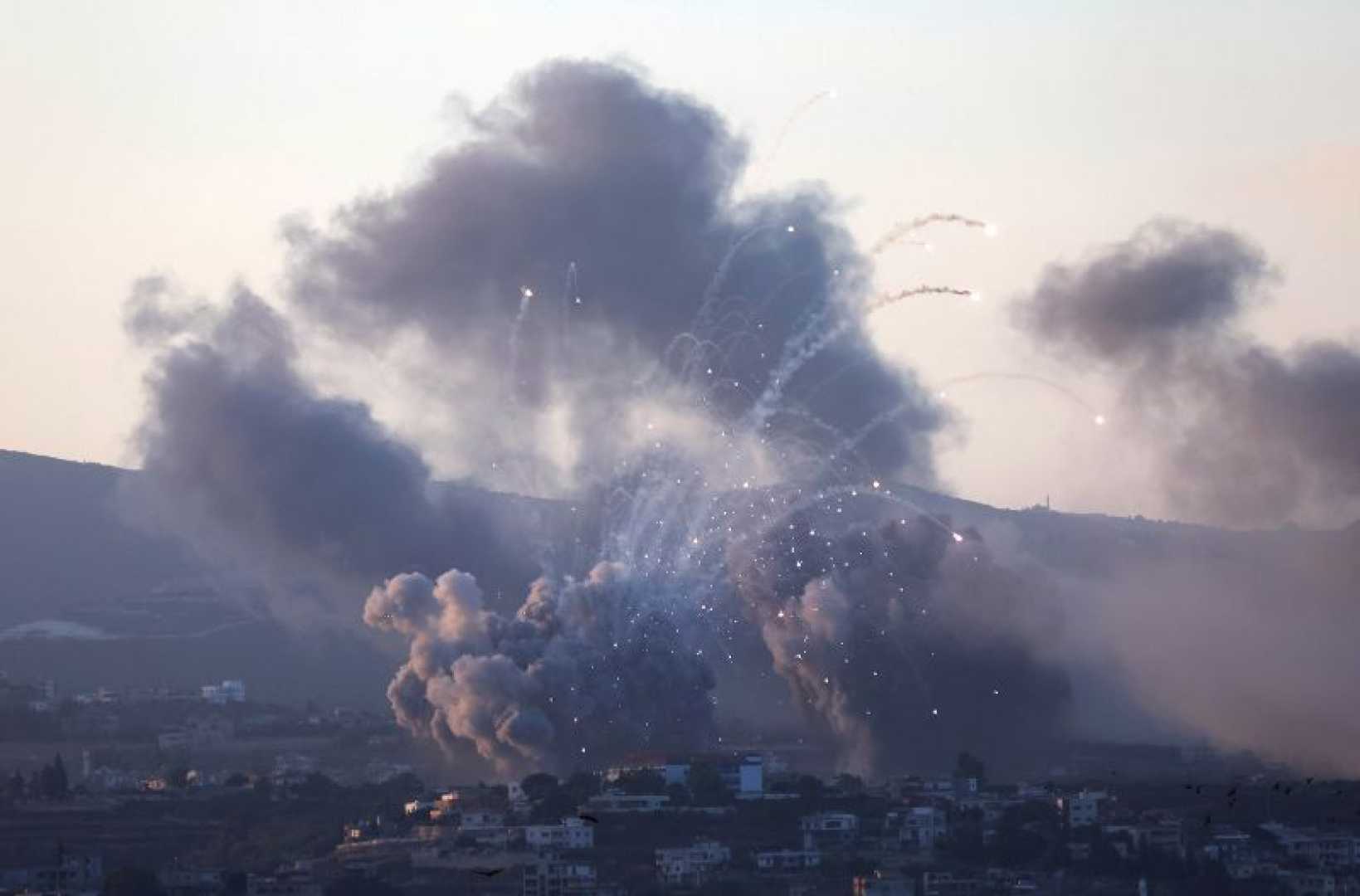World
Escalations in Middle East: Israel-Hezbollah Conflict Intensifies amid Diplomatic Strains

Reporting by Sally Nabil, Nick Beake, and Yolande Knell indicates significant military actions and diplomatic tensions in the Middle East, particularly involving Israel, Hezbollah, and regional allies. Israel’s Defence Minister, Yoav Gallant‘s postponed meeting with U.S. Defense Secretary Lloyd Austin suggests strain between President Biden‘s administration and Israeli Prime Minister Benjamin Netanyahu. News from Israeli media points to Netanyahu blocking Gallant’s travel until a conversation with Biden occurs, emphasizing current diplomatic challenges. U.S. concerns are reportedly focused on moderating Israeli retaliations against Iran to prevent broader conflict impacts on the global economy.
In parallel, military activity continues with the Lebanese National News Agency reporting more Israeli strikes hitting southern Beirut, specifically in the Burj al-Barajneh area. AFP images from Reuters show smoke over Beirut, prompting concerns over safety in Haret Hreik and Hadath after evacuation warnings issued by the Israel Defense Forces (IDF).
The IDF states that at least 50 Hezbollah members, including six senior commanders, were killed in Monday’s strikes in southern Lebanon targeting ‘underground command centres.’ Hezbollah has yet to comment on these claims. Meanwhile, the situation in Syria worsens, with the Syrian Defense Ministry confirming the deaths of seven civilians, including women and children, in strikes on Damascus’s Mazzeh neighborhood.
Israeli Prime Minister Netanyahu has reiterated his commitment to counter Hezbollah threats, indicating the assassination of potential Hezbollah successors. However, IDF spokesperson Daniel Hagari cannot confirm the death of Hashem Safieddine, anticipated to be Hezbollah’s future leader.
In Lebanon, the Disaster Risk Management Unit reports 137 Israeli airstrikes over the past day, exacerbating an already critical displacement situation, with shelters reaching capacity and an estimated 1.2 million displaced people across the country.
The Lebanese Ministry of Health states that 36 individuals have been killed in the past 24 hours from these strikes, raising concerns over humanitarian conditions and calling for broader ceasefire talks led by Hezbollah ally Nabih Berri.
Similar tensions play out within Israel, particularly in Haifa, a strategic target for Hezbollah due to its port and petrochemical infrastructure. Past attacks underscore Haifa’s vulnerability and its potential impact on Israel’s economy and safety.
Diplomatic observers note Hezbollah’s significant influence within Lebanon’s government, owning substantial political and military power, often outweighing the Lebanese army. This relationship complicates Lebanon’s stance in regional conflicts, particularly due to Hezbollah’s backing from Iran.
On the ground, Israel has expanded its military operations in Lebanon. Reports indicate troop involvement exceeding 15,000, with recent movements toward the Mediterranean coast hinting at further naval operations. The resultant humanitarian crisis in Beirut remains concerning with local authorities struggling to manage increasing displaced populations.
International efforts push for de-escalation, as Iran warns of severe retaliation if Israeli attacks on its infrastructure continue. Gulf states maintain neutral stances amid heightened tensions. Concerns over food security in Lebanon rise as agricultural disruptions threaten the nation’s ability to sustain itself.
Overall, repeated calls for restraint have not mitigated the humanitarian impacts, and with Israeli airstrikes displacing over 1.2 million people since the conflict’s escalation, a resolution remains uncertain.












